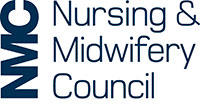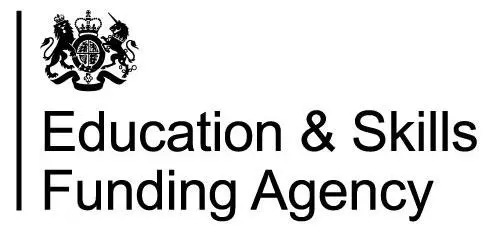BSc (Hons)Registered Nurse (NMC 2018) Degree Apprenticeship - Mental Health

Course overview
The Registered Nurse - Mental Health apprenticeship can help you gain the knowledge, expertise and the clinical experience to become a skilled, thoughtful and authentic mental health nurse who is confident you are making a positive difference to people lives and the wider communities you work within.
This apprenticeship is underpinned by Solent's BSc (Hons) Mental Health Nursing, which has been designed to meet the future nursing proficiencies set out by the Nursing and Midwifery Council (2018). Successful completion of this apprenticeship will allow you to register and work as a graduate mental health nurse.
The apprenticeship will consider what it means and how to provide mental health care in a contemporary, culturally diverse context, and what is needed for the profession to continuously improve and add value to the lived experiences of the populations we serve.
You will complete a series of modules that analyse and critique modern mental health approaches and treatment modalities, including the medical model, psychotherapeutic approaches, anthropological understanding of health beliefs, public health approaches, and the social determinants of health.
You will also undertake clinical placements in all years of study during the apprenticeship. These can take place in a variety of primary and secondary mental healthcare services.
Throughout this apprenticeship, you also will undergo a quarterly review with your employer and with the University to chart your progress.
For successful completion of this apprenticeship, you are required to undertake an end point assessment (EPA). This is organised once your employer is satisfied that you are working consistently at, or above, the level set out in the occupational standards for a registered mental health nurse. The assessment is woven into your final summative placement.
During your course you will complete a practice assessment document that will demonstrate you have completed the required skills for registration as a nurse. The EPA is designed to show your understanding of the knowledge, skills and behaviours that you will have gained in the seven platforms of the assessment document.
Any questions?
Contact the apprenticeships team
Email:
For employers
Apprenticeships can add value at all levels of your business:
- Upskill your staff with industry relevant qualifications.
- Drive an increase in productivity.
- Promote long-term loyalty and reduce staff turnover.
- Reduce the cost of qualifications and training.
- Develop staff with a minimum of interruption to day-to-day operations.
- Offer genuine opportunities for personal development.

For apprentices
Here's what a higher or degree apprenticeship can offer you:
- A combination of on-the-job and academic study which is relevant and applied.
- A continued wage and contract of employment which includes all the same benefits as any employee.
- A higher or degree qualification which is recognised, transferrable and the same level as if achieved through traditional study routes.
- A debt free future with zero tuition fees. (Please note, as apprenticeships are funded by employers, apprentices are not eligible to apply for Student Loans Company loans)
- An opportunity to develop new skills and progress within your industry.
What does this course lead to?
Registered mental health nurses can work within the National Health Service, private, voluntary and independent sector healthcare providers, education, policy, and government sectors. UK educated and NMC registered nurses also can work globally but may be required to take registration tests for other national nursing bodies.
Who is this course is for?
Mental health nursing is suitable for people who want a career that has social value and who have a keen interest in caring for others and enabling people to achieve the best outcomes they can.
Mental health nursing students often have, or want to develop, an open mind and be curious about the nature of the human condition and society and to be able to do something real that benefits both.
We welcome applications from people with all kinds of life experiences and at all stages of life.

Facilities
Our vibrant campus brings state-of-the-art facilities to enhance your learning and elevate your student experience. Our award-winning teaching building, The Spark is centred around students and offers a stimulating study environment with flexible learning spaces.
Away from studying, why not try out the gyms, fitness studios and sports halls in our £28 million Sports Complex, or watch a blockbuster film at our student-run cinema with Dolby Atmos audio.
Come to an open day
Fancy a sneak peek? Take a look around!
Meet the team
The University cannot guarantee any particular members of staff will teach specific aspects of the course in the future, but will endeavour to ensure the teaching team maintains their balance of experience and qualifications.
What you'll study
Core modules
Authentic Nursing Care
This module is your introduction to the mental health nursing programme. You will be introduced to the nursing identity that balances the care of others with the care of self; and develops the notion of wellbeing and the concepts of recovery as a co-produced process.
Delivering Public Confidence
This module explores the role of professional regulation and the key legislative acts that impact on the delivery of healthcare in the NHS, private and voluntary sectors.
Nursing Practice 1
During this module you will attend clinical practice areas that provide exposure primarily to mental health nursing, but also adult, learning disabilities and children’s nursing practice. You will also become familiar with the role of the nurse and the importance of professionalism in practice.
Public Health
This module will introduce you to the concepts of public health and health promotion. You will gain understanding of the importance of health promotion in mental health and the continued links between psychological and physical wellbeing.
Skilled Nursing
This module develops your skills in the nursing process across a range of commonly experienced mental health conditions. There will be a focus on assessment, care planning and interventions to assist in the recovery from mental ill health.
Successful apprentices will graduate with a:BSc (Hons) Mental Health Nursing
How you'll study
You will learn through a combination of directed learning, collaborative learning and guided learning. You will also make use of the University's online learning platform Solent Online Learning (SOL).You may be assessed by a combination of:
- Essays
- Reflective accounts
- Written assessments
- Case studies
- Individual presentations
Students are assessed through a combination of academic assignments and occupational standards assessments. Coursework assignments can include presentations, essays, exams, case studies, practical assessments, and reflective accounts.
Apprentices area also expected to go through an end-point assessment within three months of completing the course.
Find out more
Fees and finance
Businesses with an annual payroll above £3million will be classed as a levy paying employer and will be able to use funds accrued in their digital apprenticeship service (DAS) account for payment of the training. Please contact us for guidance on fees if you are a non-levy employer which will cover at least 95% of the costs.
- The maximum funding drawdown for this course is: £26,000
Apprentices pay nothing towards their course fees
The course fees will be covered by your employer.
Optional Costs
While most course costs are covered by your tuition fees, some essential resources and optional extras may need to be paid for separately. These additional costs are listed below. For advice on budgeting and managing your money, please contact student.funding@solent.ac.uk.
Earn while you learn
As an apprentice you'll earn while working and studying towards your degree.
Graduation costs
There is no charge to attend graduation, but you will be required to pay for the rental of your academic gown (approximately £45 per graduate, depending on your award). You may also wish to purchase official photography packages, which range in price from £15 to £200+. Graduation is not compulsory, so if you prefer to have your award sent to you, there is no cost. Extra guest tickets will go on sale after results publication and will be sold on a first-come-first-served basis. The cost per ticket is currently £15. Please note, we do not guarantee there will be any extra tickets available to purchase.
Entry Requirements

To study for an apprenticeship, you must be employed and have a contract that will cover the duration of your apprenticeship.
All apprentice applications need to go through apprenticeships@solent.ac.uk in the first instance. Applicants will be expected to provide the following documents during the onboarding process:
- CV
- Job description
- Maths and English certificates - GCSE/GCE/Functional Skills*
- Completed skills assessment (template provided by Solent's apprenticeships team)
- Passport/visa (showing access to public funds if non UK passport), or birth certificate
- Share code to show immigration status if applicable
Please note: if any certificates are from outside of the UK, you will need to have a Naric Equivalency Statement alongside the certificates.
Maths and English delivery to achieve Functional Skills Level 2 can be provided for some courses and should be discussed at onboarding stage if you do not have Maths and English certificates at Grade 4/C and above.
- Successful applicants may be able to transfer credits from another course or experiential learning. Recognition of prior learning must be capable of being mapped to the standards of proficiency for registered nurses and programme outcomes, up to a maximum of 50 percent of the programme. Applicants who hold registration with the NMC as a nurse may be able to transfer more than 50%.
Eligibility
To be eligible for an apprenticeship, you must:
- have a contract of employment that spans the length of the apprenticeship
- hold a UK passport, or if you are a non-UK national, have valid passport and Share code to demonstrate residency
- have lived in the UK for the past three years
- have access to public funds (residency status/visa status)
Ready to apply?
If you are an employer or a potential apprentice and would like to have an in-depth conversation with us about potential opportunities, please email apprenticeships@solent.ac.uk.

What is an apprenticeship?
An apprenticeship offers a unique blend of work experience and academic study. Candidates on an apprenticeship will work a paid job while simultaneously working towards a relevant qualification in their chosen field.
Apprentices are employees with a contract of employment that must cover the duration of the programme being studied. Apprentices have guaranteed time from their employer to complete their studies, at a minimum of six hours a week, known as off-the-job training hours. The University will provide each apprentice with a tracker to ensure these off the job hours are logged to demonstrate compliance with this funding rule.
Higher and apprenticeships
Solent offers a diverse range of higher and degree apprenticeships, some of which will include an additional qualification that will be studied within the Apprenticeship Standard, eg: HNC, BA or BSc.
Our apprenticeships give employees the opportunity to upskill in their chosen field or retrain for a new career while working.
Employers will see an increase in knowledge and skills, improved productivity, and a boost in the expertise of the workforce.
Find out moreThinking of applying?
Visit us on campus and explore Solent University by registering for one of our apprenticeship events.
Come to an open daySupport at Solent
All students at Solent University have access to a range of specialist support services. Whether you are having financial difficulty, need additional help with academic skills or want advice on setting up your own business you'll find that help is always on hand.
Most of our specialist support services are based around the Student Hub, a central space where you can access all the information and support you may need during your time at University. The Student Hub is the first point of contact if you have any queries relating to your course, including questions about your timetable, options, and assessments and extenuating circumstances.

We work in partnership with the University to build a sense of pride and confidence in your Union, University and student experience.
Find out more








